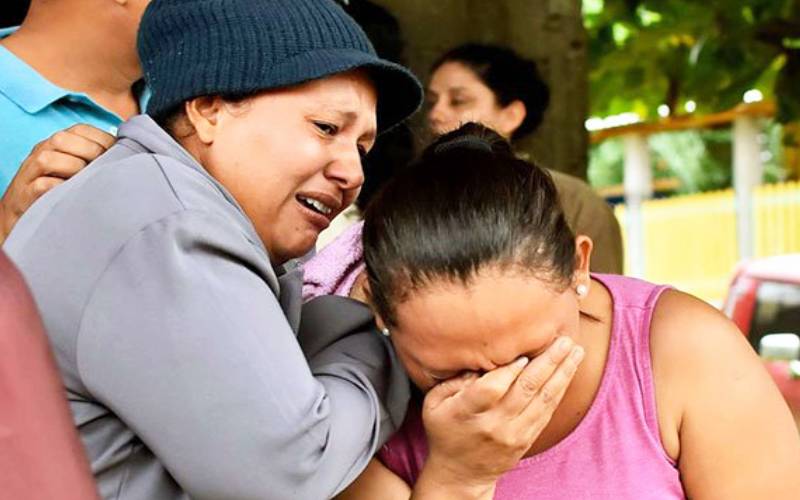×
The Standard e-Paper
Stay Informed, Even Offline

Relatives of inmates react after getting information about their loved ones in front of Tela prison, Honduras, on December 21, 2019 after clashes at the jail. [AFP]
At least 36 people were killed this weekend in clashes in Honduran prisons, over which the military and police are trying to regain control after a spate of murders linked to "maras", the criminal gangs that plague the country.